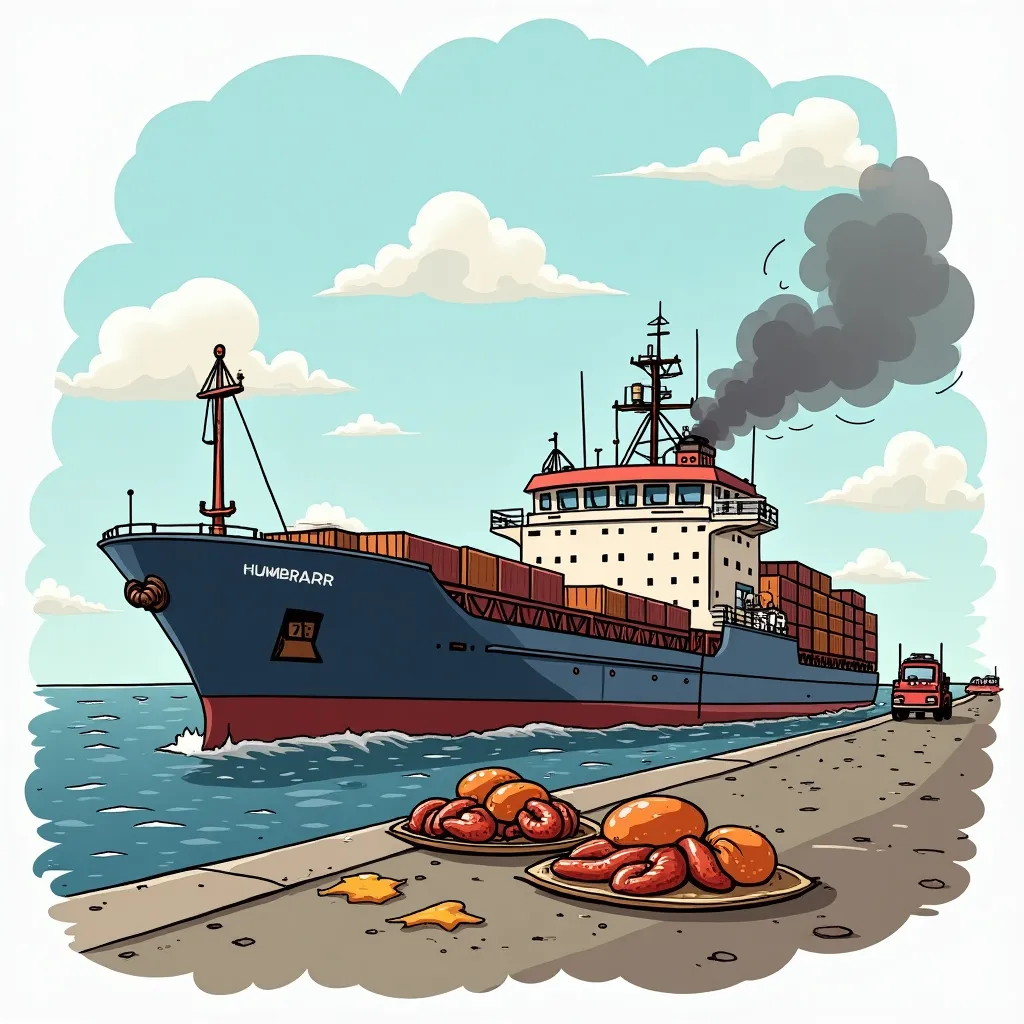A crippling labor strike at major US ports is threatening to disrupt the nation’s food supply chain, particularly when it comes to beef imports. With domestic cattle herds at a historic low, restaurants and retailers have grown reliant on foreign beef to meet demand. But as dockworkers refuse to load or unload cargo, shipments of Australian, New Zealand, and Brazilian beef are stuck at sea.
The strike, which began on Sunday, has already caused a massive backlog of container ships waiting to dock at East Coast and Gulf Coast ports. Over 50 vessels are currently anchored or loitering offshore, compared to just three last weekend. This congestion is expected to have far-reaching consequences for the entire food industry, including seafood and chicken exports.
Experts warn that even short-term disruptions could lead to shortages and price hikes for consumers. The beef sector is particularly vulnerable, as US supplies have been dwindling due to drought and high grain prices. Imports have become a crucial lifeline, with shipments from Australia alone increasing by 72% this year.
In anticipation of the strike, some suppliers stockpiled frozen beef ahead of time, but this temporary buffer will soon be depleted. If the strike persists, fast food chains and retailers may be forced to turn to more expensive domestic alternatives, driving up costs and potentially leading to higher prices for consumers.
The impact is already being felt, with US retail prices for ground beef reaching a record high of $5.58 per pound in August. The strike is also disrupting seafood imports, with some shipments stuck on ships waiting to dock. The US chicken industry, which relies heavily on exports, is also feeling the pinch as domestic demand slows.
As the standoff continues, the clock is ticking for a resolution before the food supply chain is severely impacted. With the nation’s food security hanging in the balance, all eyes are on the dockworkers and port operators to find a solution to this critical issue.


Leave a Reply